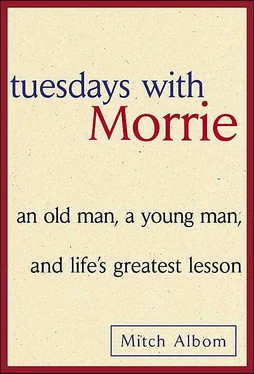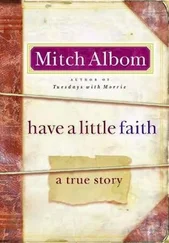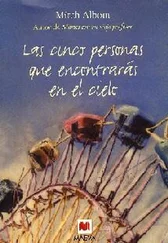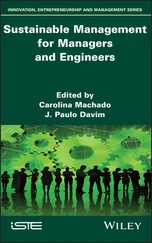“Do not stop your lives,” he told them. “Otherwise, this disease will have ruined three of us instead of one.” In this way, even as he was dying, he showed respect for his children’s worlds. Little wonder that when they sat with him, there was a waterfall of affection, lots of kisses and jokes and crouching by the side of the bed, holding hands.
“Whenever people ask me about having children or not having children, I never tell them what to do,” Morrie said now, looking at a photo of his oldest son. “I simply say, ‘There is no experience like having children.’ That’s all. There is no substitute for it. You cannot do it with a friend. You cannot do it with a lover. If you want the experience of having complete responsibility for another human being, and to learn how to love and bond in the deepest way, then you should have children.”
So you would do it again? I asked.
I glanced at the photo. Rob was kissing Morrie on the forehead, and Morrie was laughing with his eyes closed.
“Would I do it again?” he said to me, looking surprised. “Mitch, I would not have missed that experience for anything. Even though … “
He swallowed and put the picture in his lap.
“Even though there is a painful price to pay,” he said. Because you’ll be leaving them.
“Because I’ll be leaving them soon.”
He pulled his lips together, closed his eyes, and I watched the first teardrop fall down the side of his cheek.
“And now,” he whispered, “you talk.”
Me?
“Your family. I know about your parents. I met them, years ago, at graduation. You have a sister, too, right?” Yes, I said.
“Older, yes?” Older.
“And one brother, right?” I nodded.
“Younger?”
Younger.
“Like me,” Morrie said. “I have a younger brother.”
Like you, I said.
“He also came to your graduation, didn’t he?”
I blinked, and in my mind I saw us all there, sixteen years earlier, the hot sun, the blue robes, squinting as we put our arms around each other and posed for Instamatic photos, someone saying, “One, two, threeee … “
“What is it?” Morrie said, noticing my sudden quiet. “What’s on your mind?”
Nothing, I said, changing the subject.
The truth is, I do indeed have a brother, a blondhaired, hazel-eyed, two-years-younger brother, who looks so unlike me or my dark-haired sister that we used to tease him by claiming strangers had left him as a baby on our doorstep. “And one day,” we’d say, “they’re coming back to get you.” He cried when we said this, but we said it just the same.
He grew up the way many youngest children grow up, pampered, adored, and inwardly tortured. He dreamed of being an actor or a singer; he reenacted TV shows at the dinner table, playing every part, his bright smile practically jumping through his lips. I was the good student, he was the bad; I was obedient, he broke the rules; I stayed away from drugs and alcohol, he tried everything you could ingest. He moved to Europe not long after high school, preferring the more casual lifestyle he found there. Yet he remained the family favorite. When he visited home, in his wild and funny presence, I often felt stiff and conservative.
As different as we were, I reasoned that our fates would shoot in opposite directions once we hit adulthood. I was right in all ways but one. From the day my uncle died, I believed that I would suffer a similar death, an untimely disease that would take me out. So I worked at a feverish pace, and I braced myself for cancer. I could feel its breath. I knew it was coming. I waited for it the way a condemned man waits for the executioner.
And I was right. It came.
But it missed me.
It struck my brother.
The same type of cancer as my uncle. The pancreas. A rare form. And so the youngest of our family, with the blond hair and the hazel eyes, had the chemotherapy and the radiation. His hair fell out, his face went gaunt as a skeleton. It’s supposed to be me, I thought. But my brother was not me, and he was not my uncle. He was a fighter, and had been since his youngest days, when we wrestled in the basement and he actually bit through my shoe until I screamed in pain and let him go.
And so he fought back. He battled the disease in Spain, where he lived, with the aid of an experimental drug that was not—and still is not—available in the United States. He flew all over Europe for treatments. After five years of treatment, the drug appeared to chase the cancer into remission.
That was the good news. The bad news was, my brother did not want me around—not me, nor anyone in the family. Much as we tried to call and visit, he held us at bay, insisting this fight was something he needed to do by himself. Months would pass without a word from him. Messages on his answering machine would go without reply. I was ripped with guilt for what I felt I should be doing for him and fueled with anger for his denying us the right to do it.
So once again, I dove into work. I worked because I could control it. I worked because work was sensible and responsive. And each time I would call my brother’s apartment in Spain and get the answering machine—him speaking in Spanish, another sign of how far apart we had drifted—I would hang up and work some more.
Perhaps this is one reason I was drawn to Morrie. He let me be where my brother would not.
Looking back, perhaps Morrie knew this all along.
It is a winter in my childhood, on a snow packed hill in our suburban neighborhood. My brother and I are on the sled, him on top, me on the bottom. I feel his chin on my shoulder and his feet on the backs of my knees.
The sled rumbles on icy patches beneath us. We pick up speed as we descend the hill.
“CAR!” someone yells.
We see it coming, down the street to our left. We scream and try to steer away, but the runners do not move. The driver slams his horn and hits his brakes, and we do what all kids do: we jump off. In our hooded parkas, we roll like logs down the cold, wet snow, thinking the next thing to touch us will be the hard rubber of a car tire. We are yelling “AHHHHHH” and we are tingling with fear, turning over and over, the world upside down, right side up, upside down.
And then, nothing. We stop rolling and catch our breath and wipe the dripping snow from our faces. The driver turns down the street, wagging his finger. We are safe. Our sled has thudded quietly into a snowbank, and ourfriends are slapping us now, saying “Cool” and “You could have died.”
I grin at my brother, and we are united by childish pride. That wasn’t so hard, we think, and we are ready to take on death again.
The Sixth Tuesday We Talk About Emotions
I walked past the mountain laurels and the Japanese maple, up the bluestone steps of Morrie’s house. The white rain gutter hung like a lid over the doorway. I rang the bell and was greeted not by Connie but by Morrie’s wife, Charlotte, a beautiful gray-haired woman who spoke in a lilting voice. She was not often at home when I came by—she continued working at MIT, as Morrie wished—and I was surprised this morning to see her.
“Morrie’s having a bit of a hard time today,” she said. She stared over my shoulder for a moment, then moved toward the kitchen.
I’m sorry, I said.
“No, no, he’ll be happy to see you,” she said quickly. “Sure …”
She stopped in the middle of the sentence, turning her head slightly, listening for something. Then she continued. “I’m sure … he’ll feel better when he knows you’re here.”
I lifted up the bags from the market—my normal food supply, I said jokingly—and she seemed to smile and fret at the same time.
“There’s already so much food. He hasn’t eaten any from last time.”
Читать дальше












